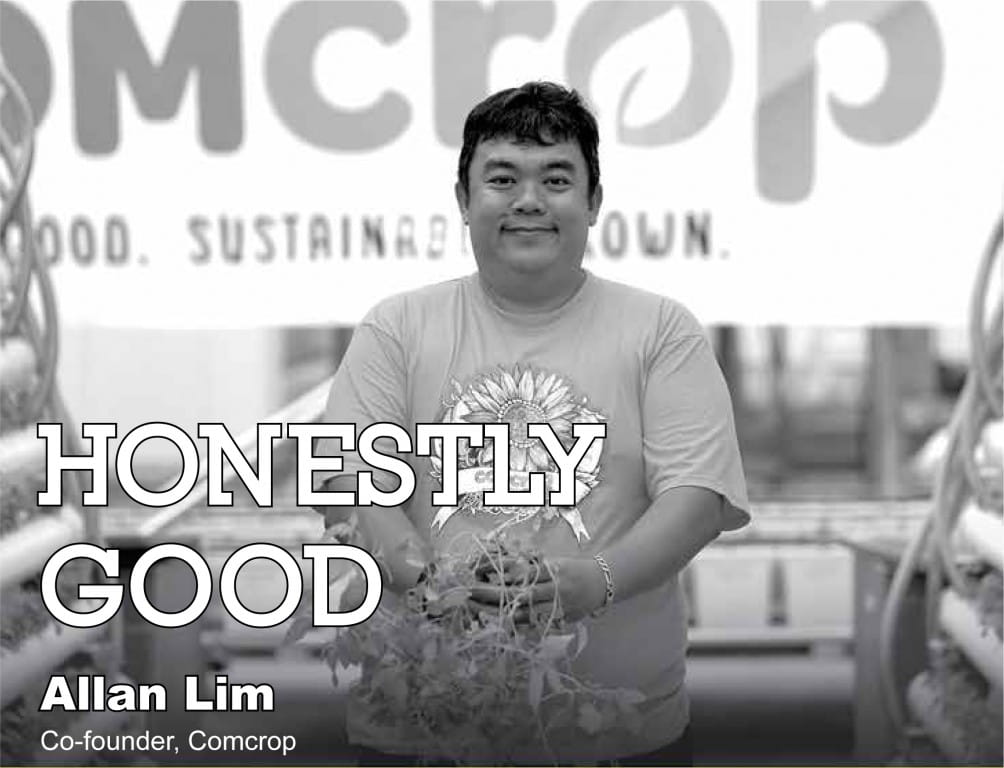
My passion is in developing projects that inspire people to do better. The Living! Project, an urban farming collective, was created to generate social awareness of urban sustainability and to change perceptions and lifestyles. It was called upon in 2011 to start a community farm, Comcrop, at Northwest CDC. Conceived as Singapore’s first sustainable urban farming project, we were very honoured to have Dame Jane Goodall officiate its opening.
In Comcrop’s first year, we fostered close ties with the farmers there and some residents of the area. It was great seeing them come together to care for and share the community farm.
Our next step came unexpectedly over a few dark and stormy nights during reservist training when a friend and I doodled our first designs for an aquaponic system on a scrap of paper. Such a system houses fishes and plants in a symbiotic relationship. We could raise good food by balancing fishes on one end and crops on the other.
These drawings reflected our passion and desire to grow wholesome and delicious food, and to share the yummy goodness with everyone — “honestly good” food. We believed it was do-able, and sustainable by using marginalised spaces like rooftops in land scarce Singapore, by hiring the elderly, the intellectually and physically challenged, and even dedicating a portion of our production to the needy.
We were very fortunate to be surrounded by likeminded individuals who contributed much time and effort to our test farm at NYCA (National Youth Council Academy) Green. There, we altered, bettered, customised and perfected our systems for raising fish and plants. Happy fish = happy plants = honestly good food.
Building on our “honestly good” mantra, we moved to Scape’s rooftop as Singapore’s first rooftop vertical aquaponic farm. After over two-and-a-half years, we are bringing our clients the freshest produce with same-day harvest and delivery from a space that would otherwise be unused. We employ the elderly and the socially challenged, while dedicating 20 percent of our production space to growing food for charity. And I feel we are just getting started.”


